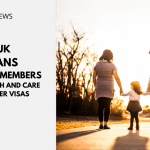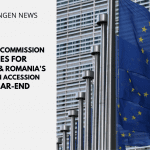How to apply for an adult dependant relative visa to come to the UK
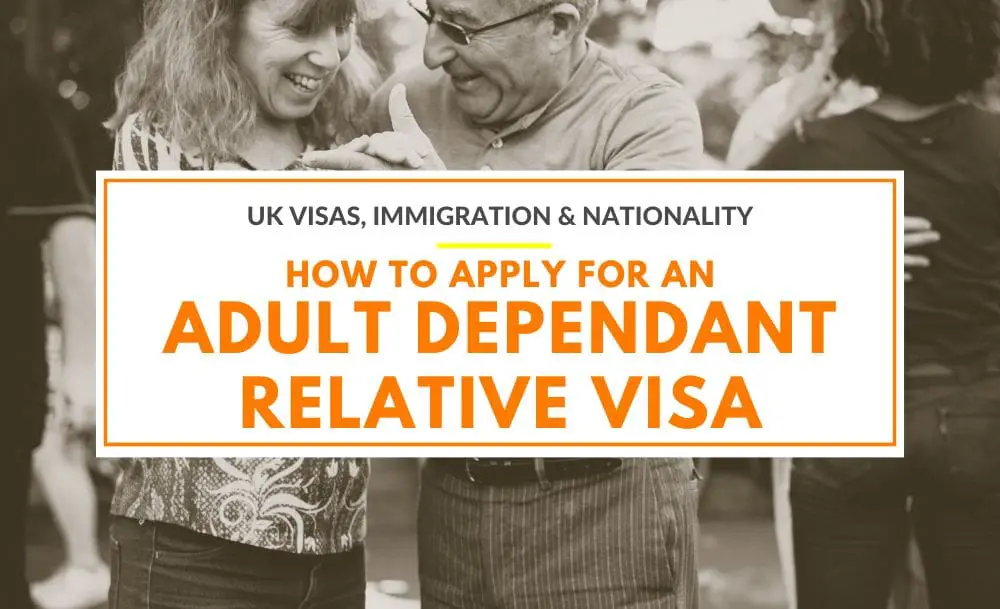
The Adult Dependent Visa route is a category of visa for people over the age of 18 that wish to join their relatives in the UK. The family member you are joining in the UK must be a British citizen or have settled status in the UK, or be a person holding settled or pre-settled status under the Brexit arrangements. The applicant must be over the age of 18 and dependent on their relative due to a physical or mental disability, or because they require long-term care and support or age.
To be eligible for this visa, the applicant must provide evidence of their dependency on their relative and that their relative is able to provide adequate support and accommodation for them in the UK without recourse to public funds.
The application process for the Adult Dependent Visa is complex and there are several requirements that must be met. It is important to seek professional advice and guidance before applying for this visa. The visa application fee for the Adult Dependent Visa is over £3000 and the processing time is usually around 12 weeks.
It’s wrong to not be able to be with your family members when you or they need the care and support of a loved one. As a family member, being separated from your loved ones when they need care and support can feel like an injustice. Parents and grandparents, in particular, may find themselves needing to join their families in the UK, but the rules and regulations surrounding the Adult Dependent Visa can create confusion and uncertainty.
At IaM, we understand how important it is to be able to connect and thrive with your family, especially during difficult times. That's why we offer our Easy Process Plans, which guide you through the application process step-by-step. Our expert team will provide you with personalised support and advice, ensuring that you meet all the necessary requirements to obtain your visa.
With our help, you can be reunited with your loved ones and provide them with the care and support they need. Don't let confusion and uncertainty stand in the way of your family's well-being.
Requirements for the UK Adult Dependant Visa
To apply, you must be outside the UK and need long-term care from a parent, grandchild, brother, sister, son or daughter who is living in the UK permanently. This person is known as your sponsor. If the family member you want to join has settled or pre-settled status you may be able to apply through the EU Settlement Scheme.
Living permanently in the UK means that:
- they’re a British or Irish citizen
- they’ve settled in the UK – for example, they have indefinite leave to remain (ILR), settled status or proof of permanent residence (PR)
- they’re from the EU, Switzerland, Norway, Iceland or Liechtenstein and have pre-settled status under the Brexit arrangements of the EU Settlement Scheme.
- they have refugee status or humanitarian protection in the UK
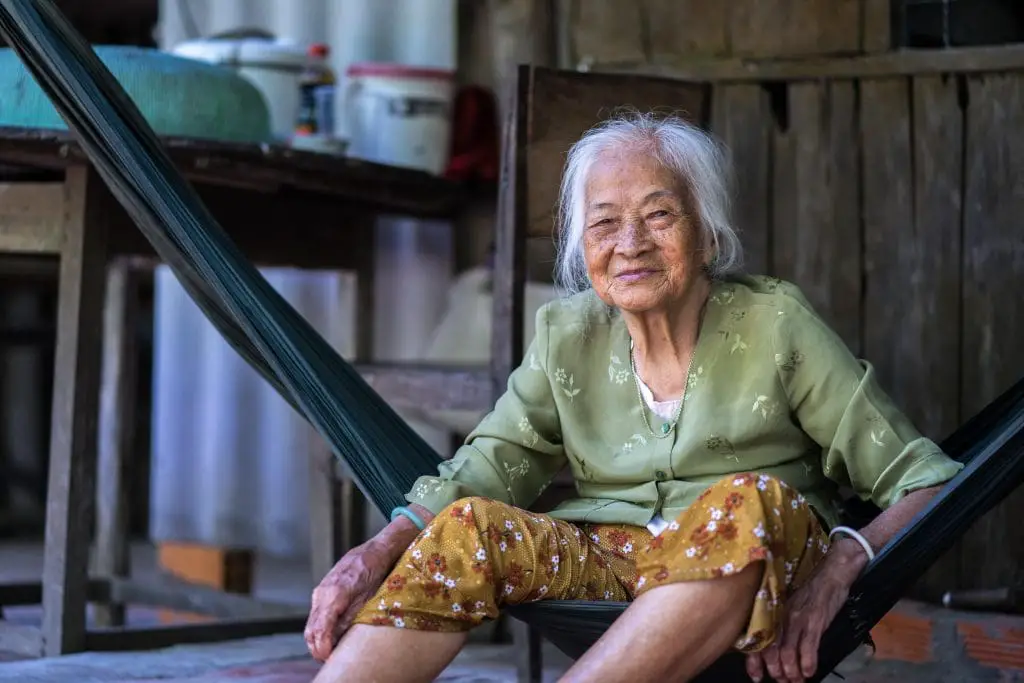
Evidence Required for the UK Adult Dependant Relative Visa
You need to provide evidence proving that:
- you need long-term care for everyday personal and household tasks due to illness, disability or age.
- the care you need is unavailable or unaffordable where you currently live
- the family member you are joining in the UK is able to support, accommodate and care for you without claiming public funds for at least 5 years
Your family member will need to provide an undertaking that there will be no access to public funds for five years even though your visa will usually be granted for permanent residency (known as indefinite leave to enter) unless they have pre-settled status.
Check out our free guide on how to avoid visa refusals and get access to our Adult Dependant relative visa documents request list.
Defining The Age, Illness or Disability Requirement
To meet this requirement, you must require long-term personal care to perform everyday tasks. Examples given are washing, dressing and cooking. It means that you must be incapable of performing such everyday tasks for yourself.
To demonstrate that you are incapable of performing washing, dressing, and cooking tasks, you will need to provide evidence that supports your claim. Examples of evidence can come in several forms:
- Medical Evidence: You can provide medical evidence from a qualified medical practitioner or specialist who has treated you for your condition. This can include medical reports, hospital discharge summaries, and letters from your doctor or consultant that describe your medical condition and the effects it has on your ability to perform daily tasks such as washing, dressing, and cooking.
- Personal Statements: You can also provide a personal statement that explains how your condition affects your ability to perform daily tasks. This statement should be detailed and provide examples of specific situations where you have struggled to perform these tasks due to your condition.
- Third-Party Evidence: You can also provide evidence from a family member or friend who has observed your condition and can testify to the difficulties you face when performing daily tasks. This can include statements from caregivers, family members, or friends who have seen you struggle with washing, dressing, and cooking.
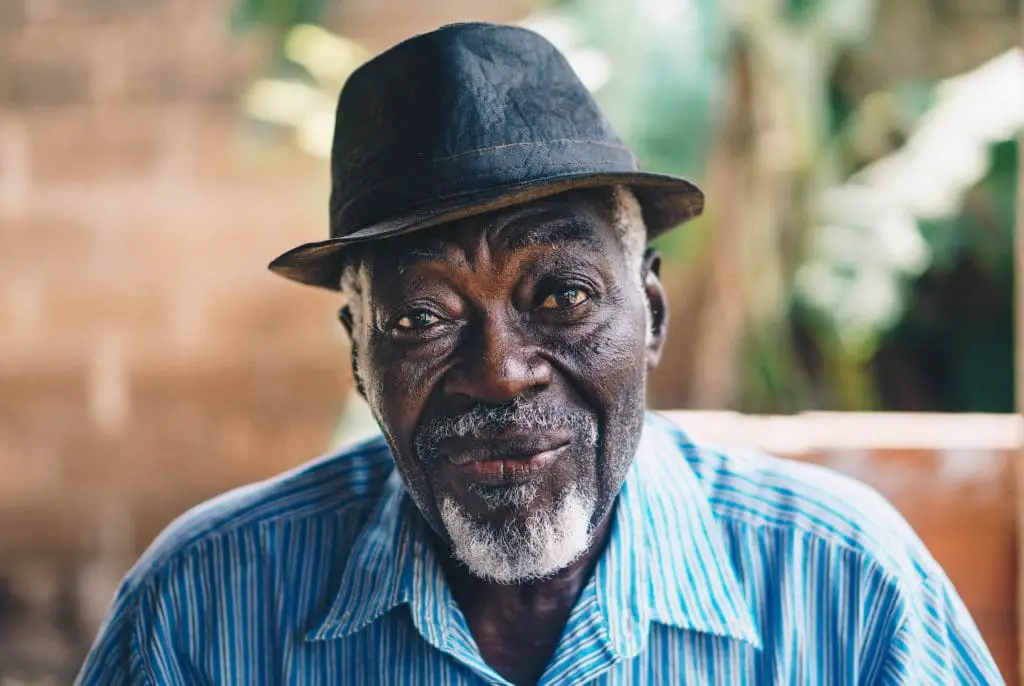
Circumstances in Your Country of Origin
When making an application for the Adult Dependant Relative visa, the decision maker will make an investigation into the circumstances in which you currently live. This is because the UK government grants this visa to Applicants where their circumstances are worse off where you are than being allowed to enter the UK.
Therefore there are some comparisons to making a Human Rights application, which is explained later.
No Person in your Country Can Reasonably Provide You with Care
You will need to make a consideration into whether there is anyone in your country who can reasonably provide the required level of care. This might be a close family member: son, daughter, brother, sister, parent, grandchild, grandparent, a wider family member, friend or neighbour, or another person who can reasonably provide the care required.
For example, the UK Government will consider whether a home help, housekeeper, nurse, carer or care or nursing home can give you the required level of care. If you have more than one close family member in the country where you are living, those family members may be able to pool resources to provide you with the required care.
To establish that you have no access to the required level of care in the country where you are living, even with the practical and financial help of the sponsor in the UK, you will need to provide evidence that supports your claim. Examples of this type of evidence can be:
- Medical Evidence: You can provide medical evidence from a qualified medical practitioner or specialist who has treated you for your condition in the country where you are currently living. This can include medical reports, hospital discharge summaries, and letters from your doctor or consultant that describe your medical condition and the effects it has on your ability to access care.
- Care Plans: You can provide evidence of any care plans that have been put in place to support your needs in the country where you are currently living. This can include details of any support services that have been arranged, such as home care or nursing services, and evidence of the level of care that is being provided.
- Third-Party Evidence: You can also provide evidence from a family member or friend who has observed the care you are receiving in the country where you are currently living and can testify to the difficulties you face in accessing the required level of care. This can include statements from caregivers, family members, or friends who have seen the limitations of the care system in your current location.
It is important to note that demonstrating a lack of access to care in your current location is just one part of the application process for the Adult Dependent Visa. But the evidence you provide could also contradict other claims such as the claim showing that there is nobody else that can provide you with reasonable care. Providing comprehensive and compelling evidence of your situation will help to increase your chances of your visa being granted.
Financial Dependency
To demonstrate that you are financially dependent on your relative in the UK and that they are able to provide adequate support and accommodation for you, you will need to provide evidence of their financial circumstances and your own financial dependence.
Here are some ways to demonstrate your financial dependence:
- Bank statements: Provide bank statements that show that you are financially dependent on your relative in the UK. This can include transfers of money from your relative's account to yours or regular payments that they make to you.
- Income: If you have any income, such as from a pension, provide evidence of this. If your income is not enough to support yourself, you can provide evidence of your expenses and bills that your relative pays for you.
- Employment: If you are unable to work due to your condition, provide medical evidence of this. If you are able to work, provide evidence of any job applications you have made or any interviews you have attended that show you are unable to secure work due to your condition.
To demonstrate that your relative in the UK is able to provide adequate support and accommodation for you, you can provide the following evidence:
- Accommodation: Provide evidence that your relative has adequate space to accommodate you in their home, such as a spare bedroom. You can also provide evidence that they have suitable facilities for any care needs you may have.
- Income: Provide evidence of your relative's income, such as bank statements and pay stubs, to show that they are able to financially support you. This can include evidence of their pension or other sources of income.
- Living costs: Provide evidence of the living costs your relative will incur by supporting you, such as food, bills, and any medical costs you may have. This can include receipts for expenses related to your care.
It is important to provide as much evidence as possible to support your application for the Adult Dependent Visa. This will help to demonstrate that you meet the eligibility criteria and increase your chances of being granted the visa.
Without Recourse to Public Funds
“Without recourse to public funds” means that you are not allowed to access certain types of UK public funds or benefits provided by the government. This condition is often attached to visas and immigration applications, including this Adult Dependent Visa application.
If your visa is granted, you will be made subject to the condition of “without recourse to public funds,”. You will therefore not be permitted to claim most means-tested benefits, such as income support, housing benefit, and jobseeker's allowance. You are also not allowed to access public funds for healthcare, social housing, or other types of financial assistance provided by the UK government.
But please note that although you are not allowed to claim access to public funds, access to the NHS is not considered public funds. And the IHS (Immigration Health Surcharge) is to cover the fees to access healthcare.
The purpose of this condition is to ensure that the person who is granted a visa or immigration status is able to support themselves financially without relying on public funds. In the case of the Adult Dependent Visa, the condition is designed to ensure that the sponsor in the UK is able to provide financial support for their dependent relative without relying on state benefits.
“The policy intention behind the ADR Rules is, firstly, to reduce the burden on the taxpayer for the provision of NHS and local authority social care services to ADRs whose needs can reasonably and adequately be met in their home country. Secondly, it is to ensure that those ADRs whose needs can only be reasonably and adequately met in the UK are granted immediate settled status (where their sponsor has this or is a British citizen) and full access to the NHS and local authority social care services. This is intended to avoid creating a disparity between ADRs depending on their wealth and that of their sponsor, and to give those ADRs who qualify certainty about their long-term status in the UK”.
UK Government Policy
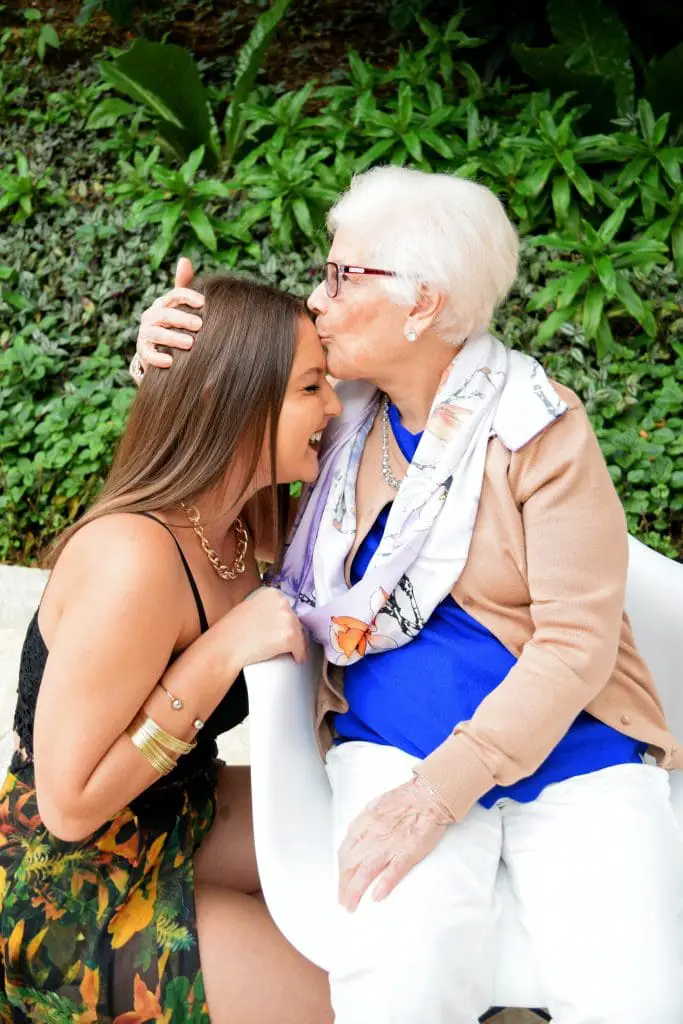
Other Requirements
You must not fall for refusal under the general grounds of refusal and meet the suitability and eligibility requirements. Examples of this include not having breached immigration rules, not having been deported, criminality etc. These detailed requirements will need to be checked prior to submitting your application.
The Adult Dependant Visa and a Human Rights Application
When you fail to meet the requirements of the Adult Dependent Relative Rules, you will also be considered for a second type of application under the (Europen Convention on Human Rights) ECHR Article 8. This is the right to respect of private and family life. If it is considered that your situation engages the particular circumstances, an examination will be made as to whether there are exceptional circumstances that would make refusal a breach of Article 8. Article 8 will be engaged if the decision leads to unjustifiably harsh consequences for you or your family.
While Article 8 protects the right to respect for private and family life, it is generally not engaged by the relationship between adult family members who are not partners. Blood ties or bonds of concern and affection alone are not enough to constitute family life for the purposes of Article 8. To establish the existence of family life between non-partner adults, there must be something more than normal emotional ties. This may include the age, health, and vulnerability of the applicant, the closeness and previous history of the family, the applicant's dependence on the financial and emotional support of the family, and the prevailing cultural traditions and conditions in the applicant's country of residence.
Therefore, in cases where you do not meet the requirements of the Adult Dependent Relative Rules, it is necessary to also provide detailed information that strengthens all relevant factors to determine whether exceptional circumstances exist that would make a refusal of the visa a breach of Article 8.
How to apply for an Adult Dependent Relative visa
You will need to follow these steps:
After checking if you are eligible to apply for the UK Adult Dependent Visa above and have gathered the required documents, you will need to complete the application form online application and pay the application fee. You will need to include all of the required supporting documents.
You will then be invited to attend a biometric appointment to provide your fingerprints and a photograph. This will usually be done at a visa application centre in your country.
The process can take several months for your application once it has been submitted. You currently cannot check the status of your application online but you may be able to log into the account you used to submit to see if there are any updates. Additionally, for a small fee, you can also request an update on your application.
If your application is successful, you will be granted a visa to enter the UK as an Adult Dependent.
It is important to provide comprehensive and accurate information in your application and to include all of the required supporting documents. This will help to increase your chances of being granted a visa.
If you're seeking to apply for a UK Adult Dependant Relative Visa, our expert lawyers can guide you through the process using our Easy Process Plan framework.
As well as a step-by-step guide, we will provide you with advice and done-for-you assistance to complete the application, including gathering the necessary documents, filling out the application forms, and submitting the application.
Contact IaM today and let us help you navigate the Adult Dependent Visa application process. and take the first step towards being reunited with your loved ones in the UK.
- New Immigration Statistics for Year Ending December 2024 - 19 March 2025
- The Conservative’s New UK Immigration Plan – What You Need to Know - 7 February 2025
- How to apply for an adult dependant relative visa to come to the UK - 22 March 2023



